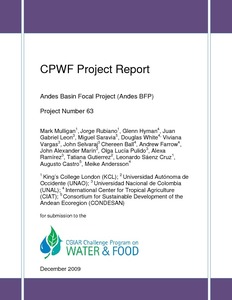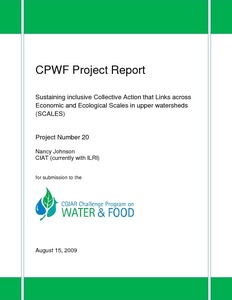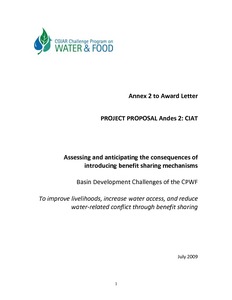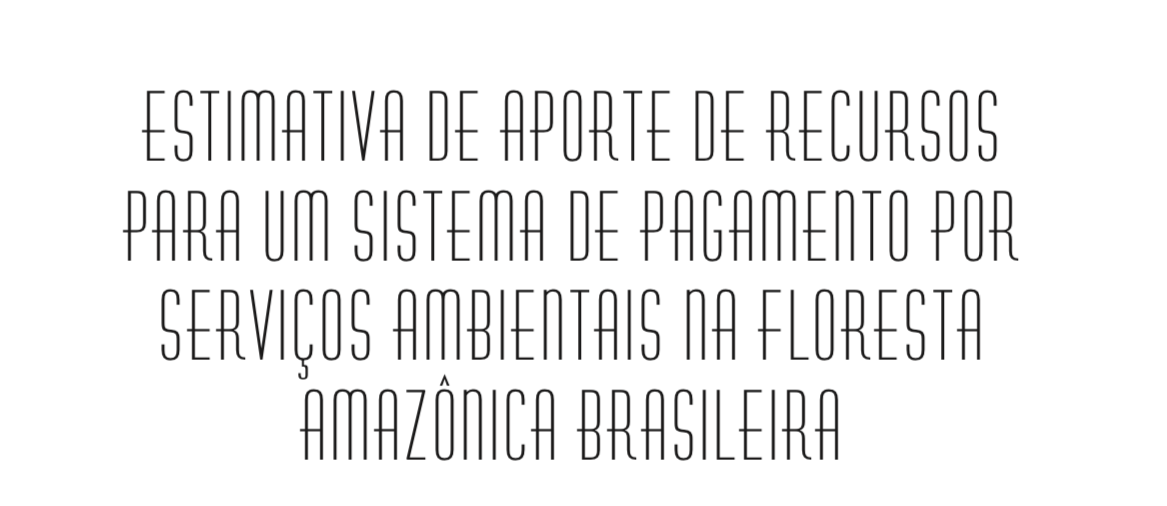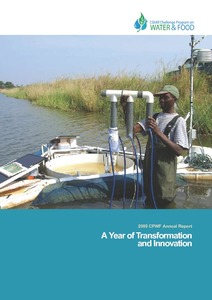The CPWF Basin Focal Project for the Andes system of basins worked with a range of local
stakeholders to develop a better understanding of the mechanisms for improving the
productivity of water in the Andes. We considered productivity in broad terms as the
productivity of…
*Asier Hernando
El 18 de noviembre terminó en Roma la Cumbre Mundial de Alimentos, que reunió a más de sesenta jefes de Estado y representantes de gobierno. El resultado fue deslucido. La Cumbre tenía por objetivo discutir y dar solución al desafío de la seguridad alimentaria del mundo.…
Debate sobre la pobreza rural en América Latina: Hacia una nueva estratégia
* Cristobal Kay
Las principales causas de las pobreza rural son de carácter estructural, como la distribución desigual de la tierra y el poder político. Ni una estrategia de desarrollo de industrialización…
La siguiente Ley tiene por objeto disposiciones en materia de conservación, uso y manejo adecuado de los suelos y de las aguas. En primer lugar, modifica el artículo 2º de la Ley Nº 15.239, el cual se refiere a las obligaciones de los titulares de explotaciones agropecuarias. Asimismo, la…
Consejo (de ministros) Agropecuario del Sur, vigencia y utilidad
Alcira Córdova Avilés*
En la ciudad de La Paz, Bolivia, concluyó el XVII encuentro de ministros de Consejo Agropecuario del Sur (CAS), entidad creada en abril del año 2003 y conformada por representantes de Argentina,…
The Sustaining inclusive Collective Action that Links across Economic and Ecological Scales in upper watersheds (Scales) project fits mainly in People and Water in Catchments Theme (Theme
2) of the CPWF. Its goal is to contribute to poverty alleviation in the upper watersheds of the
…
This project is about showing whether BSM are effective. It seeks to quantify the consequences of BSM-driven changes in land and water management for livelihoods in upstream rural communities, and for water supplies for downstream water consumers. It will develop methods to anticipate ex ante…
The CPWF-supported project ‘Models for implementing multiple-use water supply
systems for enhanced land and water productivity, rural livelihoods and gender equity’
(‘CPWF-MUS’) innovated, tested, and documented homestead-scale and communityscale
models for Multiple Use water…
The economy of the Amazon region relies heavily on water for transport and livelihoods. Important also for the regional water cycle, the Amazon ecosystems are threatened by climate change, although there is little knowledge about the likelihood of adverse events and potentially related…
A importância das florestas para a conservação do planeta e para o bem estar das gerações futuras é cada vez mais reconhecida pela enormidade de bens e serviços prestados à humanidade: elas contribuem para o equilíbrio do clima e das águas, abrigam uma valiosa biodiversidade, além de…
Through its innovative operations, and its facilitation of dynamic
communities of researchers, development experts, policy makers,
producers and consumers, this CGIAR Challenge Program goes
beyond research for development as usually practiced.
Yet, paradoxically for a…
This Medium Term Plan (MTP) is written as the CPWF transitions from its first Phase (2004?
2008) to its second Phase (2009?2013). It describes the status of the CPWF as the newly
established Board discusses and approves plans for this second Phase. At the time of writing three of six…

